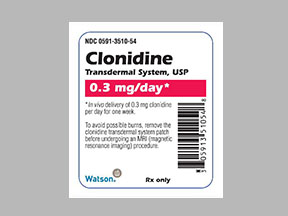
Catapres-tts-3 Coupons & Savings Card – Discount Prices from $40.63
Brand for: Clonidine
My prescription
Edit
0.3MG/24HR, Clonidine (4 Patch Weeklies)
Select pharmacy

CVS
$40.63
COUPON PRICE
Walgreens
$61.44
COUPON PRICE
Albertsons
$66.33
COUPON PRICE
Walmart
$74.75
COUPON PRICECatapres-tts-3 savings card
Show this card to your pharmacist
CVS
$40.63
BIN
ID
PCN
GRP
019876
LH81BF2418
CHIPPO
LHX
Powered by
More prescriptions for hypertension
More prescriptions for hypertension
Catapres-tts-3 (Clonidine) dosage forms
Dosage Quantity Price from Per unit 0.3MG/24HR 4 Patch Weeklies $40.63 $10.16 0.3MG/24HR 1 Patch Weekly $22.13 $22.13
| Dosage | Quantity | Price from | Per unit |
|---|---|---|---|
| 0.3MG/24HR | 4 Patch Weeklies | $40.63 | $10.16 |
| 0.3MG/24HR | 1 Patch Weekly | $22.13 | $22.13 |
What is Catapres TTS used for?
Catapres TTS is used to treat high blood pressure (hypertension). It helps to lower blood pressure, reducing the risk of strokes, heart attacks, and kidney problems.
What condition would Catapres be prescribed for?
Catapres is typically prescribed for the management of high blood pressure (hypertension).
What does Catapres help with?
Catapres is primarily used to treat high blood pressure (hypertension). It may also be prescribed for other conditions such as attention deficit hyperactivity disorder (ADHD) and certain pain conditions, as it can have calming effects on the nervous system.
What is the difference between clonidine and Catapres?
Clonidine is the generic name of the medication, while Catapres is a brand name for clonidine. Both refer to the same drug, which is used to treat conditions such as high blood pressure. The difference lies in the name and potentially the manufacturer, but the active ingredient is the same.
